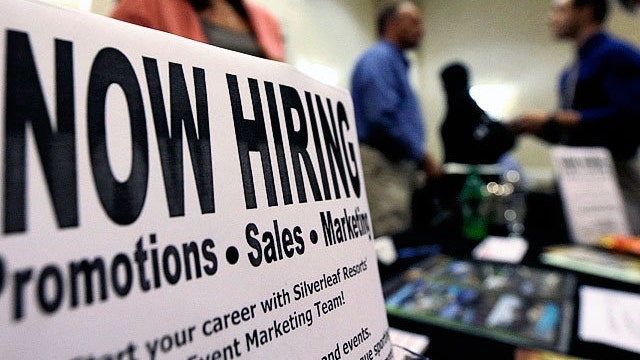With more than 1 million Americans expected to leave military service over the next five years, the nation's largest veterans group is trying to ease their transition to civilian life.
At its 96th National Convention, the American Legion is hosting a job fair and workshops. The sessions are not only aimed at improving resumes and interview skills for vets seeking employment with government agencies or private sector firms, but also assisting those who want to start their own businesses.
Bryce Mollman, a Marine who left active duty in 2012, aspires to own a business after overcoming some of the basic challenges facing many vets.
"Money for one," Mollman said. "You start with nothing and just build from there. That's the biggest (challenge). And learning your own way — learning how to be your own boss."
The transition from service to employment has been especially difficult for those who joined the military after the terrorist attacks of September 11, 2001 — a group the federal government classifies as "Gulf War-era II veterans."
This group saw an unemployment rate of 9.2 percent in July, according to the Labor Department's Bureau of Labor Statistics (BLS). Whereas, the unemployment rate for all veterans that month was 6.0 percent, actually faring somewhat better than nonveterans who faced 6.2 percent unemployment.
[pullquote]
According to 2013 BLS data, more than half of Gulf War-era II veterans are between the ages of 25 and 34 and about 80 percent are men. In general, young men face higher unemployment.
However, the BLS reports that male veterans age 25 to 34 still had a higher 2013 unemployment rate (9.2 percent) than male nonveterans in that same age group (7.5 percent). So, demographics explain only part of the reason for higher unemployment among post-9/11 veterans.
According to Davy Leghorn, assistant director of the American Legion's Economic Division, the sheer numbers of Gulf War-era II veterans returning to civilian life are a big factor.
"Historically, after every period of armed conflict, there's always been unemployment for veterans," Leghorn said. "If you look back to World War I, they came back with ticker tape parades in November and they were unemployed come January."
Despite the challenges many veterans face in entering the civilian workforce, advocates say their military experience gives them unique qualifications for employment.
"You learn leadership, how to lead in high pressure situations, character, work ethic, the whole thing," said Kevin McDugle.
After some initial struggles getting into the civilian workforce, the former Marine drill instructor now holds an MBA, owns two marketing firms and serves as executive director of the nonprofit group, Soldier’s Wish.
"When people ask me, 'Should I get an MBA or go in the military?'" I can tell you, the eight years in the Marine Corps gave me more experience than any MBA could ever get you," McDugle said.
John DiPiero, who works on veteran transition initiatives with the financial services company USAA, recommends that military service members start exploring employment opportunities one to two years before transitioning to civilian life.
"Prepare yourself early," DiPiero said. "Know what's out there. Do your research. And understand the language of the corporate world."










































